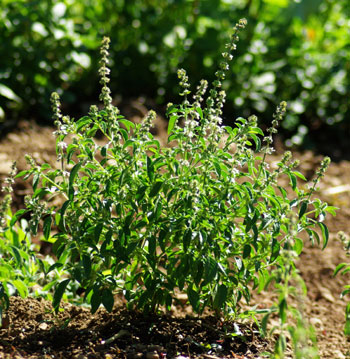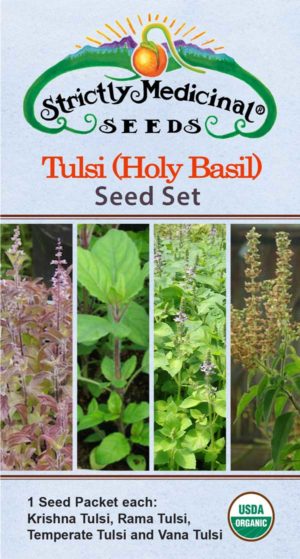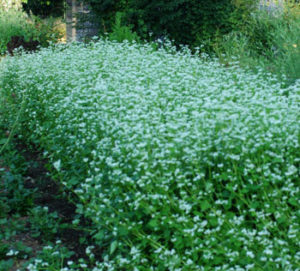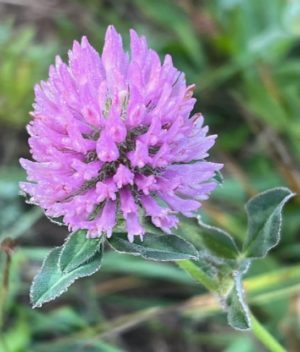Basil, Kivumbasi Lime (Ocimum africanum), packet of 50 seeds, organic
$2.95
Family: Mint (Lamiaceae)
Annual. 60 days to harvest.
(Kivumbasi ndimu) Native to the island of Unguja, in Zanzibar. Flowers to 20 inches, flowers white, fragrance distinctly citrusy. Traditional usage (African herbalism): tea, divination. Plant prefers full sun and garden soil. Regular basil culture, sow in the garden in a fine seedbed, or start in pots and transplant. Will tend to go fast to flower, keep nipped back.
50 Seeds/pkt, Certified Organically Grown
In stock






Jason Howard –
This is a very fine basil. I have grown about everything available on the open Market in the US for basil seeds and this one really stands out. What is great about this plant is its heartiness and amazing flavor. It handles hot weather really well and is fairly resistant to the dreaded basil downy mildew. I grew mine in some compost amended clay soil with a ph of around 6. It will cross pollinate with other basils in particular the temperate Tulsi so if you save your seeds, you may have some surprises in store for you. I really appreciate Richo’s first hand experience with these amazing East African basils and sharing more about their cultural importance.
Upvote if this was helpful (0) Downvote if this was not helpful (0) Watch Unwatch Flag for removal
Levi (verified owner) –
I started mine in a small pot then transplanted to a 5 gallon pot. I like their smell because they have a bit of fruit loops (like the morning cereal). I have mine in partial shade under a sparse tree and one in full sun. Photo taken in late July.
Upvote if this was helpful (0) Downvote if this was not helpful (0) Watch Unwatch Flag for removal
Question
Ashley Zanath –
I am curious; how is it used for divination?
Upvote if this was helpful (0) Downvote if this was not helpful (0) Watch Unwatch Flag for removal
Richo Cech –
hi ashley, my experience is that various herbs are used as diagnostic tools for determining the cause and treatment of body pains, spiritual malaise and various illnesses. There are as many techniques as there are practitioners. the local basils are commonly used. i’m not really at liberty to put a finer point on it, richo
Upvote if this was helpful (0) Downvote if this was not helpful (0) Flag for removal